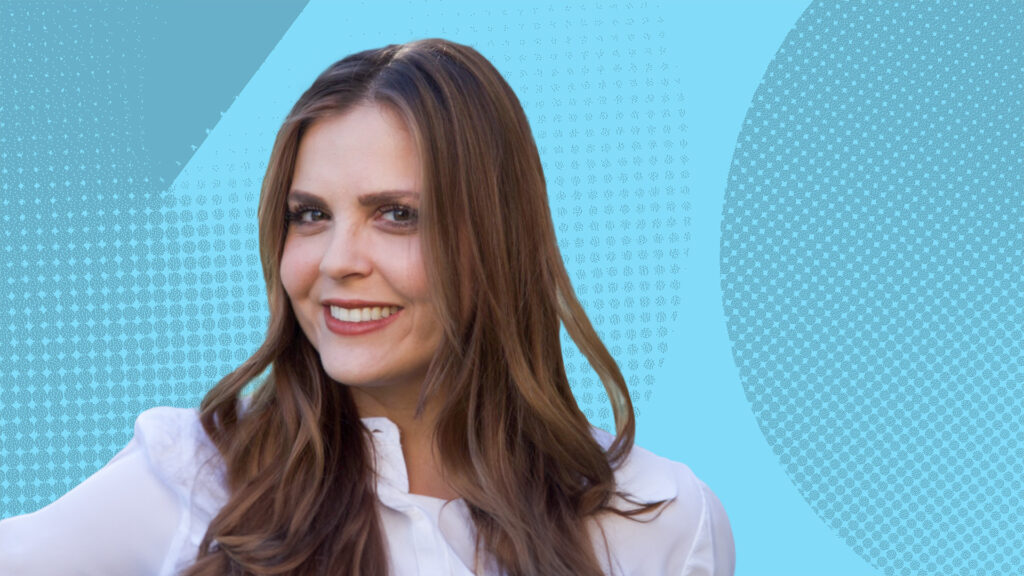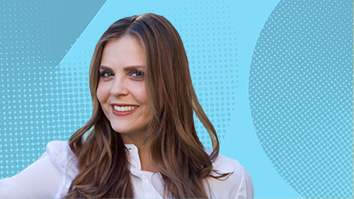
The director of SRI’s Clinical Trials Unit explores how increased access to clinical research can improve public health.
Laura Atleski tests and develops new medication therapies to help make important medications reach all markets and communities. She discusses how a strong family system helped her realize her strong passion for healthcare.
I’m the director of SRI’s Clinical Trials Unit (CTU) based in Michigan, where I oversee operations and manage our clinical staff. At the CTU we’re testing newly developed medication and therapies that include pills, liquids, and devices worn on the body. We collaborate with both commercial and federal clients and bridge the gap between medicine, clinical research, and public health. My main goal is to make clinical research accessible to all, especially in rural and underserved communities.
I grew up in a close-knit family where there was an interest in medicine, but I began developing my passion for science when I was diagnosed with Type 1 diabetes at the age of 6. This is a disease that never sleeps and that always needs to be taken care of, so I had to grow up quickly. Many people diagnosed with a chronic condition see it as a setback or a challenge, which it is, but for me, there was also a silver lining that helped bring out my inner scientist. I have been able to learn how my body works, how eating affects my blood sugar levels, and how insulin levels affect me.
As I got older, I began volunteering in the community and quickly realized that not everyone had the same strong family support system that I did. It made me want to help people – to find ways to give back, which also directed me to a career in medicine. I went to medical school and planned to become an internist doing primary care.
Working to reduce hospitalization for chronic patients
My emergency medical rotation made me aware of how disadvantaged patients are unable to get the help they need. I learned more about the social determinants of health, and how these patients had unmet needs due to their financial circumstances. I joined a clinical research program studying how to decrease hospitalizations for patients with continued challenges while also improving care at lower costs, and I loved everything about it.
“I love the work I’m doing here, in part because I feel like a pioneer, finding new ways to make things work.” – Laura Atleski Magda
Soon after, I was accepted to two postdoctoral fellowships at the University of Chicago – a National Institute of Health program focused on clinical research and biomedical informatics, and the National Institute on Aging training program that looked at the economics of aging. I also obtained my master’s degree in public health, and that’s where everything came full circle.
My interest in medicine and clinical research grew stronger
I came back home to Michigan in 2022 because my husband and I have family here, but also because I wanted to bring my experience and skills to communities here. I was looking for a workplace that would let me grow personally and professionally; that’s what attracted me to SRI. In addition to being in a leadership position, I wanted to have the option of creating proposals for my own clinical research studies, particularly in the field of public health. A lot of places wouldn’t have that kind of bandwidth, but the answer at SRI was “absolutely.”
Bridging the gap between communities and care
I love the work I’m doing here, in part because I feel like a pioneer, finding new ways to make things work. One of my passion projects involves increasing connections between communities and accessible care. That includes gathering clinical research data to identify specific needs in underserved communities. Imagine, for example, being able to identify a lack of mental health support in a particular rural area, then figuring out how to use technology to connect patients with services outside their area.
I also love working with my team and connecting across SRI divisions, such as Education and Advanced Technology and Systems. I’ve met some inspiring people, including my supervisor Jon Mirsalis, our division president Kathlynn Brown, and Biosciences recruiter Marlo Hughen, who helps me grow our talent pool.
I’m proud that we’re all trying to help people by thinking differently. It really does take an army to develop new solutions that reach the population.



